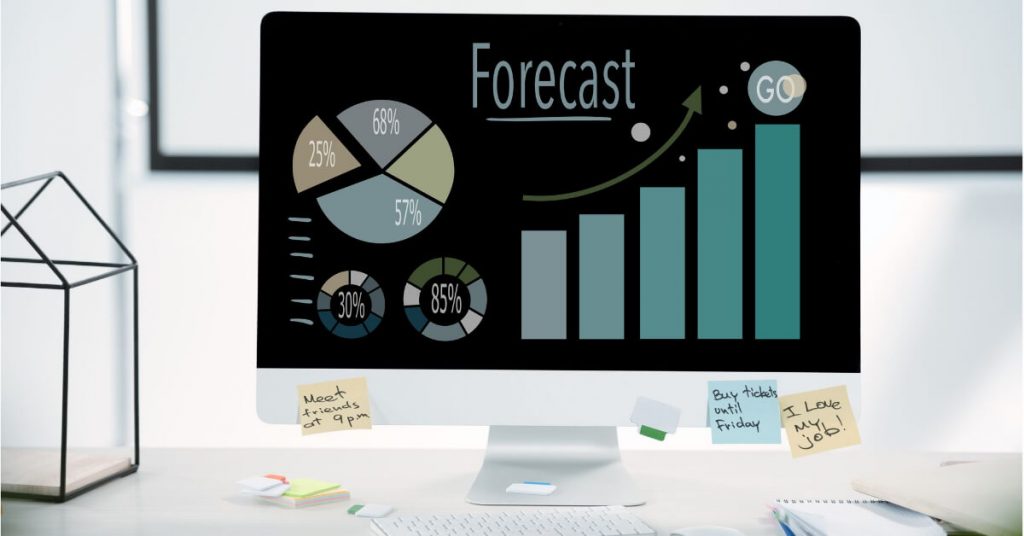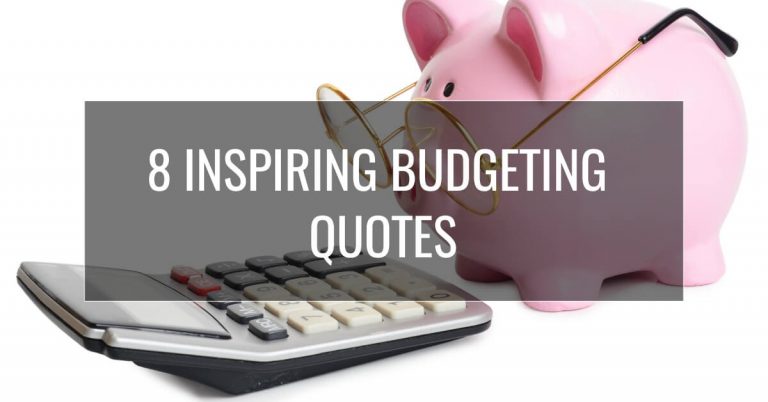Financial forecasting is essential for anyone who wants to succeed, including business owners.
It helps people plan ahead and prepare for future situations.
While it sounds great to have financial predictions that you can use as a guide to executing your business plan, using financial forecasts isn’t always simple.
In fact, it can be quite challenging to comprehend, especially if you’re new to the field.
If you want to take advantage of the financial forecast and not get confused, I will explain everything you need to know as a beginner.
In this article, you’ll learn exactly what is financial forecasting, all benefits provided by it, and finally, all different types of financial strategies helping business owners and private individuals.

What Does Financial Forecasting Means?
Financial forecasting is predicting the performance of businesses by creating financial statements.
It is crucial to determine what adjustments companies have to make to achieve their business goals.
For instance, funding a capital project, implementing business plans, and more.
Ensuring the future growth of a business is smart, but it’s not easy.
Thus, some company owners create a cash flow projection to guide them with the steps they need to take to put their company in a great financial position.

The Benefits of Predicting Financial Performance
Creating financial reports and comprehending your cash flow forecast can be challenging.
But they are worth the efforts.
If you make an accurate forecast of your future company standing, you can gain the following benefits:
Get Your Potential Investors
Starting a business can help people make themselves financially healthy while being their own boss.
However, having ideas alone might not be enough to keep your company going.
You’ll need to have enough funds to buy your materials, hire people, and pay for other variable costs.
If you don’t have the capital, you can get a bank loan and provide for your expenses.
However, it can be difficult to qualify for a business loan.
Plus, some banks require financial forecasts too.
Fortunately, you can get capital investments from bigger companies or other interested individuals.
To get your potential investors they need to have the assurance that your business will be worth their money.
Investing is risky, and there’s no guarantee that your business strategies will be effective.
However, you need to give your potential investors reasons why they should believe in your business.
Set Business Budget
Having a forecast of your finances will help you create a budget plan and achieve your budget goals.
Financial planning is essential to ensure that you don’t overspend and you control your company budget.
Business problems can occur at any time.
So, you have to be prepared to make sure that your financial budget will be enough to handle your difficulties.
Make Wise Financial Decisions
If you have a basis for your financial status in the future, you can prevent certain problems from happening.
For instance, if your cash flow statement shows that your business will face difficulty in some time, you can cut some of your unessential spendings to have funds.
On the other hand, if you find from your sales forecast that you will achieve sales growth more than expected, you can use that information and take advantage of your company’s situation.
If you are planning for an expansion for your business, creating additional activities for your employees, or other things that will require a budget, you can consider your plans and set the right budget.
Be Prepared for Best-Case and Worst-Case Scenario
It’s hard to predict the exact future events.
But with the information you have regarding your company, you can create an estimation of your future income and expense projection.
When you do, you’ll be ready for the opportunities you will receive that require funds.
You’ll avoid getting stressed about where you will get the money you need to grab the great chance that will be given to your business.
On the other hand, if something bad comes up with your prediction, you’ll be more confident that you can overcome it.
Business matters, especially the tough ones, can be complex to manage.
So, as much as possible, you have to do your best to prevent the worst event and make extensive efforts to solve things while they are still manageable.

Types of Financial Forecasts
To create the right forecast for your business goals, you need to know what types are there.
Generally, there are two main types of forecasts – qualitative and quantitative forecast.
Qualitative Forecasts
In qualitative forecasts, intuitive thinking and experience are needed.
The human mind is complex, and we are capable of analyzing things, especially with experience.
While it can still be challenging to use our own minds to comprehend complex things, this kind of financial forecast is still effective, given there’s no historical data to analyze.
Below are some samples of qualitative forecasts:
- Professional Opinion
To get an analysis of your business performance and predict the future performances of your company, you can get an opinion from the experts.
You can consult a financial advisor, sales department, and other essential personnel and have them gathered to share their analysis during your forecast.
- Reference Forecasts
Reference forecast is a method that you can use to tell your company’s future standing by using similar scenarios as a reference.
The more similarities between your company’s situation and your reference, the more accurate the prediction can be.
- Delphi Method
The Delphi method involves gathering data by surveying experts.
After answering the questionnaires, a panel of professionals will discuss their answers and come up with the forecast.
- Consumer Research
Like the Delphi method, consumer research also requires surveys.
However, the questionnaires are answered by consumers rather than financial experts.
Quantitative Forecast
This type of prediction is historical forecasting or using past data to analyze patterns.
Since there are only a few historical data, qualitative forecasting methods are often preferred in businesses.
But the quantitative method can still be effective, depending on your goals. Here are the examples:
- Pro Forma Statement
Pro Forma is a method where you have to use your income and expenses in the past to estimate your future financial situation.
- Time Series Prediction
Time series is one of the famous types of quantitative forecast.
It requires using trends in a certain time to collect statistical data and help with decision-making.
- Causal Forecasting
Causal forecasting is mainly about the cause and effect relationship of variables in a business.
If you use this technique, you have to consider all factors that can affect your business performance, as they can impact your company’s future.
In business, there are dependent and independent variables.
You have to know what independent variables are present in your business and how they affect the dependent or changing variables.
You can gather the data you’ll need for this technique by doing surveys, your product or services features, etc., and creating models.
Usually, in causal forecasting, you can use models like regression models, econometric models, leading indicator models, and more.

Conclusion
The responsibilities of business owners are great, and it takes strategies to keep the company going.
For this reason, owners have to do everything they can and do the best tactics to come up with the best business decision.
One of those is by using various methods to predict their company’s financial future and making the right choices.
Although financial forecasting can be complex to apply to business planning, it’s still an effective way to keep your business in excellent standing.
For more financial articles, please feel free to subscribe to our mailing list to get updates.







